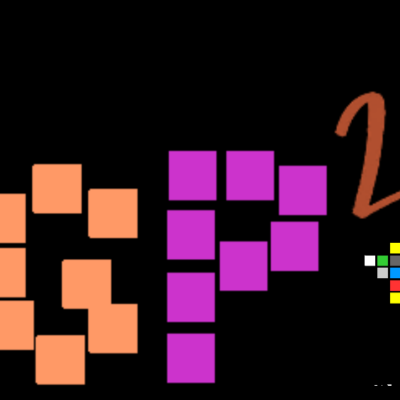By Anna Romandash
Photos by Patricia Senge
ProZorro, public e-procurement system from Ukraine, has won the Golden Award at this year’s OGP Summit. The online platform contains all the information on public tenders in Ukraine thus minimizing corruption in procurement deals. The project, launched in 2015, uses the principle “Everybody sees everything” so ordinary citizen can check and verify each purchase. ProZorro also won a special award for Ukraine thanks to youth involvement in the platform development. We have spoken with Yuriy Bugay, eProcurement Team Lead, Eurasia Foundation/Transparency International Ukraine, on how the project works, and its possibilities for journalistic work.
How does ProZorro work? What features does it have?
ProZorro has three unique features. The first one is “Everybody sees everything.” There is no confidential information whatsoever, so the users can see everything about the public tender. They can see who won, how, and why. The other feature is the hybrid structure of ProZorro; we have one central platform that spreads information the others, so it can be accessed from different sources. It is quite different from all other structures where there is a state-owned platform only, or many small platforms with different kinds of information. Third feature is the golden triangle partnership, which includes a system of business analysts. There is a central state-owned database, business-owned platforms, and monitoring modules, which belong to Transparency International. Also, the system is open-source, so everybody can use it freely. For instance, in other countries, such systems cost around $10 million. Besides, ProZorro is very fast, and very few countries have a similar platform for e-procurement. The EU itself has no such system; it was supposed to be implemented this year, but pushed for the next one.
How did the project start?
It all began in March of 2014, after the Revolution in Ukraine and the formation of a new government. With a new Minister of Economics, new working groups started working on state procurement system. In June of the same year, Georgian reformers Tato Urdzhumelashvili and David Margania came to Ukraine; back in Georgia, they did reforms on public procurement, so they focused on that sphere in Ukraine. They also brought the principle “Everybody sees everything”. It is unique because nowhere else in the world the entire information is open.
The main problem ProZorro wanted to address was corruption in procurement, and we decided to open the information completely as a way to solve the issue. Previously, Ukraine had online procurement announcements unlike many other European countries, which still lack this information. The biggest corruption, however, is hidden in the auction proposals; and before ProZorro, it was impossible to check who proposed what.
As a result, Ukraine has implemented its own unique system, where there is one central platform that spreads information to the other platforms. It’s like one bank and many ATMs a person can use. In 2015, we launched the platform, and this year, already all central authorities are using it.
Who verifies procurement information?
We believe that the best controllers are the ones, who lost; they can review the winner’s information and procurement data. Previously, only the client could see all the information, but now, everybody can check everything.
What does ProZorro team look like?
ProZorro is a movement, and we want it to remain such. It includes different departments in central government, local ngos and partners, as well as Supervisory Board, which is Transparency International.
How can journalists use ProZorro?
Our partner, Transparency International, involves journalists and promotes the project to them through trainings and workshops on platform usage. It is not simple because media makers have to switch from the old working mode to a new one. They need to learn how to work with data and different indicators. We had a case in Ukraine, when a medical clinic got extremely expensive broomsticks, each worth around $100. Some journalists claimed it was ProZorro’s fail because the system did not work properly if it allowed such purchase. But this is ProZorro’s very essence: previously, no one would even find out about the procurement, and thanks to the system, the public learned about it, criticized, and the purchase got cancelled.
Besides, in October, TI Ukraine launched monitoring portal DoZorro, which is a great place for journalists. There, people discuss controversial tenders, and journalists can use the portal for their own research.
What are some other spheres ProZorro develops?
One is ProZorro.Sale; it’s a raising auction for the deposits guarantee fund. Last year, more than 80 banks left Ukraine’s market, so we did a project to sell the assets of these banks. This direction has even greater potential than ProZorro because we can use its principle to sell small enterprises.
We are interested in another direction, related to renting and using state property. In Ukraine, the amount of state property is rather high, but it is often being rented cheaper than the market price. In that case, there is a possibility of corruption, and we want to avoid it by developing another auction.
How do you get an Open Government Award?
During the last three years, Ukraine opened a lot of new information on a brand new level, especially when comparing to other countries. Such projects as ProZorro.Sale are unique to the world. We also have open e-declarations of the officials and lots of open data. So, the past years have been marked by a lot of unique things implemented in Ukraine.
The advantage of Ukraine is that it does interesting and big projects. We started to understand the importance of OGP because it can influence the local agenda. Now, thanks to the influence from the civil society, we are able to develop really important initiatives. For instance, there is a project that will hopefully happen soon; it is the creation of beneficiary’s registry. This will be a huge step for Ukraine to know the ultimate owners of the companies. We can become trendsetters in OGP as we already are in procurement.






